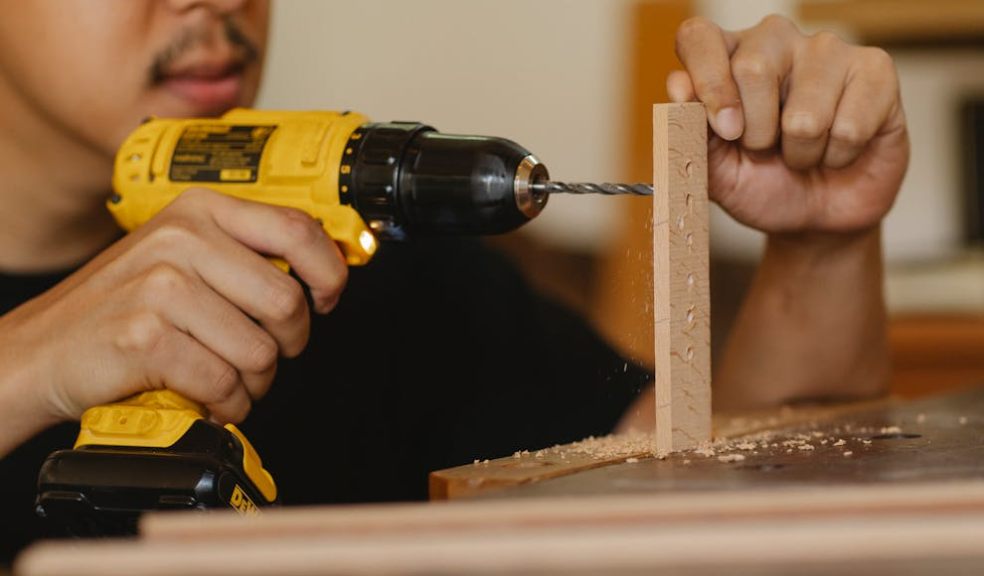
Power Tools for Small Spaces: How to Avoid Clutter
Working in small spaces presents unique challenges, especially when it comes to storing and using power tools. Whether you’re tackling a DIY project in a compact workshop or working in a small apartment, keeping your workspace organized and efficient is crucial. This article explores strategies for managing power tools in limited spaces and highlights how these strategies are successfully implemented in Exeter, featuring popular brands like DeWalt.
Understanding the Challenges of Small Spaces
Small workspaces, such as those found in apartments or compact workshops, often face limitations regarding both storage and maneuverability. The challenge is to optimize the use of available space without compromising functionality or safety. Here’s how to approach this problem:
1. Prioritize Essential Tools
When space is limited, it’s vital to focus on essential tools that provide the most versatility. Multi-functional tools, such as a DeWalt cordless drill with interchangeable bits or a compact DeWalt oscillating tool, can replace multiple single-function tools. This approach minimizes clutter while ensuring you have the necessary equipment for various tasks.
2. Utilize Wall and Vertical Storage
In small spaces, maximizing vertical storage is key. Wall-mounted racks, pegboards, and shelves can help you organize tools without taking up valuable floor space. By storing tools like DeWalt power drills and saws vertically, you keep your workspace clear and accessible. Adjustable shelving units also offer flexibility for accommodating different tool sizes and types.
3. Invest in Compact and Collapsible Tools
Compact tools are designed specifically for tight spaces. Look for tools that are smaller in size but still powerful and effective. DeWalt offers several compact options, such as a mini circular saw or a foldable workbench, which can be easily stored when not in use and set up quickly when needed.
4. Use Tool Storage Solutions with Multiple Compartments
Toolboxes and storage cases with multiple compartments allow you to organize tools and accessories efficiently. Opt for storage solutions that offer clear labeling and easy access. Stackable DeWalt toolboxes are particularly useful for saving space while keeping your tools neatly organized.
Case Study: Effective Power Tool Management in Exeter
In Exeter, a city known for its charming historic homes and compact living spaces, residents have adopted innovative solutions to manage power tools efficiently in small areas. Here’s an example of how local workshops and DIY enthusiasts in Exeter handle tool storage and organization:
1.Community Workshops and Shared Spaces
Exeter boasts several community workshops and shared maker spaces where small-scale projects are common. These facilities are designed to maximize limited space with smart storage solutions. For instance, the Exeter Makerspace utilizes vertical wall storage for frequently used tools and features modular shelving that can be adjusted according to project needs. DeWalt tools are often featured in these spaces for their reliability and compact design, contributing to an organized and functional environment.
2. Home Workshops with Custom Solutions
Many DIY enthusiasts in Exeter have tailored their home workshops to fit into small areas. One notable example is the use of custom-built tool cabinets and foldable workbenches. Homeowners often design cabinets that fit snugly into available wall space, incorporating sliding doors to conceal tools when not in use. Additionally, foldable workbenches, including those from DeWalt, can be mounted on walls and pulled down as needed, providing a functional workspace without permanently occupying floor space.
3. Innovative Tool Storage Products
Local retailers in Exeter offer specialized tool storage products designed for compact living. DeWalt's stackable tool storage systems and compact tool organizers are popular among Exeter residents for their ability to keep tools organized while taking up minimal space. These products are ideal for managing a diverse range of tools in small workshops or home setups.
Tips for Implementing These Strategies
1. Plan Your Layout
Before setting up your workspace, plan your layout to make the most of available space. Consider where tools will be used most frequently and arrange storage accordingly. Creating a detailed plan ensures that you use your space efficiently and keep tools accessible.
2. Regularly Review and Adjust
Regularly review your tool storage solutions to ensure they continue to meet your needs. As projects and tool collections change, you may need to adjust your storage arrangements. Flexibility and periodic reassessment help maintain an organized and functional workspace.
3. Incorporate Smart Technology
Consider incorporating smart technology into your workspace, such as tool management apps or digital inventory systems. These tools can help you keep track of your DeWalt tools and their locations, further reducing clutter and improving efficiency.
Conclusion
Managing power tools in small spaces requires thoughtful planning and innovative solutions. By prioritizing essential tools, utilizing vertical storage, investing in compact options, and employing multi-compartment storage solutions, you can maintain an organized and efficient workspace. The examples from Exeter, including the use of DeWalt tools, demonstrate that with creativity and the right strategies, it’s possible to work effectively and comfortably in small spaces. Embrace these approaches to enhance your productivity and enjoy a clutter-free environment.














